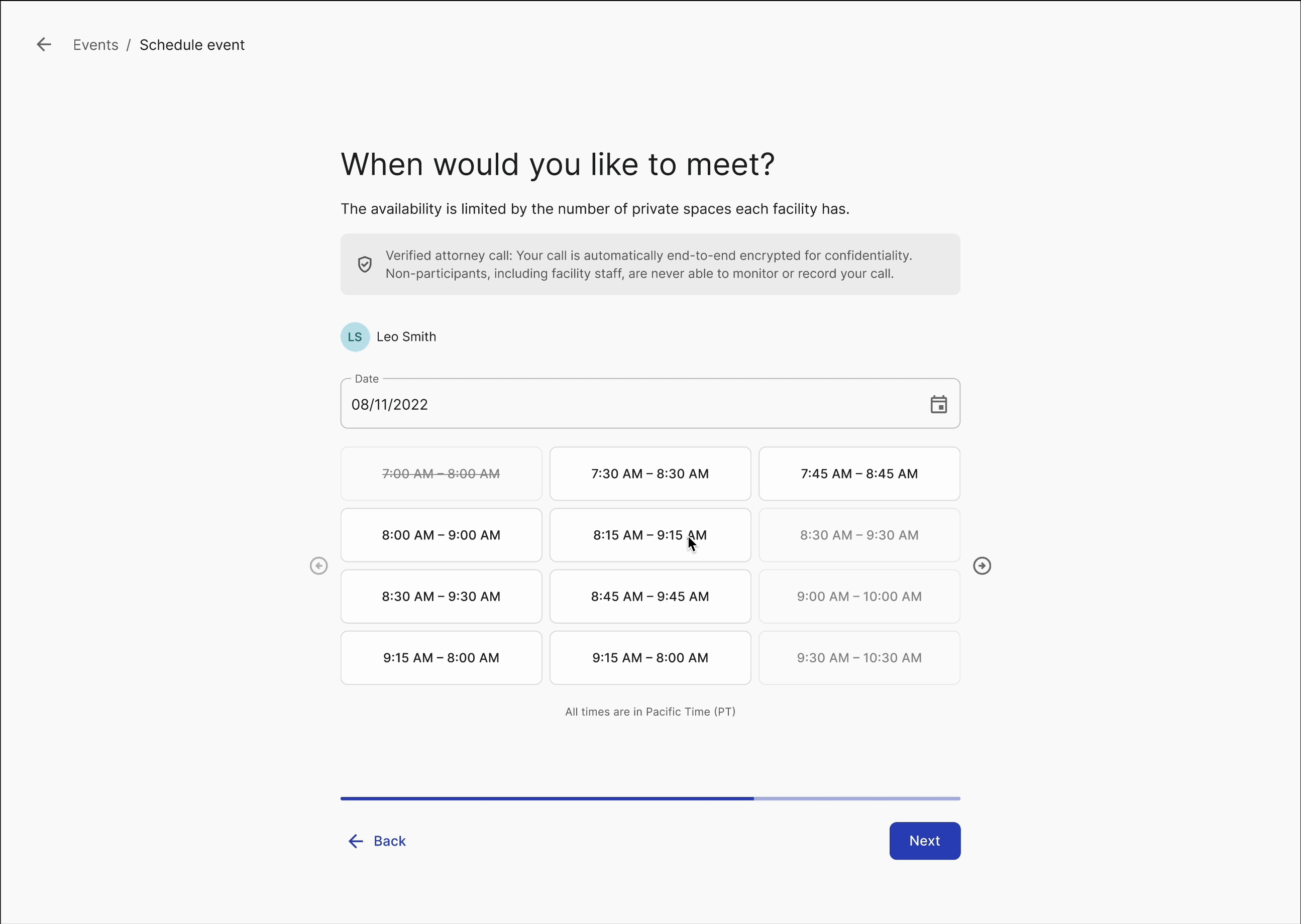Ameelio for Attorneys

Ameelio is a technology nonprofit pushing for a more humane and rehabilitative corrections system by improving communication channels between incarcerated individuals and their support networks. This access plays a crucial role in lowering recidivism rates.
BACKGROUND
After developing Ameelio's core mail app to connect families with incarcerated loved ones, the executive team identified defense attorneys as key to supporting successful reentry and driving platform adoption in correctional institutions. The founding CTO tasked me with creating a research plan and using insights to design an MVP. I led the project, collaborating with the Head of Engineering and Principal Product Designer to implement the final designs.
RESEARCH PLAN
Objective 1: Understand the end-to-end journey of initiating and terminating an attorney-client relationship.
Objective 2: Discover the different tools/methods for communication and particpants' mental models for each
Timeline: 5 weeks
Participants: 4 legal providers, 4 currently/formerly incarcerated individuals, 2 Department of Correction staff
Methodology: one-on-one generative interviews & usability testing
RESEARCH ARTIFACTS
After interviewing, I presented a comprehensive document of Findings, Product Directions/Principles, and Next Steps to the CTO and Head of Engineering — visualizing user journeys and the pain points of their current solutions.




some research visualizations
DEFENSE ATTORNEYS HAVE TRUST ISSUES
Attorneys are skeptical of the confidentiality of their calls with incarcerated with clients, which has been breached in previous incidents.
Because correctional facilities have inconsistent onboarding protocols for attorneys — particularly in how they exchange information through paperwork, emails, and phone calls — attorneys experience a learning curve when coordinating visitation at a new facility. This can lead to friction between the attorneys and facility staff, where attorneys feel like facility operations slow down their work, and facility staff feel disrespected.
These inefficiencies consume valuable time for overburdened attorneys and stoke a pre-established distrust in correctional facilities and contracted third-party services, ultimately hindering incarcerated individuals' access to critical legal counsel.
MVP DESIGN DIRECTIONS
-
Streamline the attorney-facility onboarding process to minimize friction and reduce touchpoints between attorneys and DOC staff, ensuring incarcerated individuals can connect with their attorneys more quickly.
-
Build attorney confidence in the confidentiality and security of our platform, positioning Ameelio as a trusted and advocate-worthy solution in the correctional space.
1. STREAMLINED ONBOARDING
By streamlining the onboarding process digitally, we replaced the back-and-forth calls and paperwork that correctional facilities and attorney offices exchange in their legacy analog system. In addition, we adapted the designs of a confidential ID upload flow from our mobile app, modernizing the identity verification process in the correctional space.
.png)
visualized + transparent onboarding steps
.png)
ID upload

onboarding user flow
2. ASSURED CONFIDENTIALITY
I wrote and tested language at multiple touch points — onboarding, video call waiting room, and messaging — to ease attorneys' worries about the confidentiality of our product.

Informational text in the event scheduling flow

Informational text in the video call waiting roo

Informational text in the event scheduling flow
IMPACT
Provider Communications quickly became a cornerstone of Ameelio's services to correctional facilities. Attorneys from National Association of Criminal Defense Lawyers and North County Bar Association are now using it to connect with their incarcerated clients in Maine, Iowa, and Colorado. This adoption has been pivotal in securing state contracts and advancing Ameelio's goal of shifting the financial burden from incarcerated individuals and their families to the institutions that are better positioned to absorb the cost.